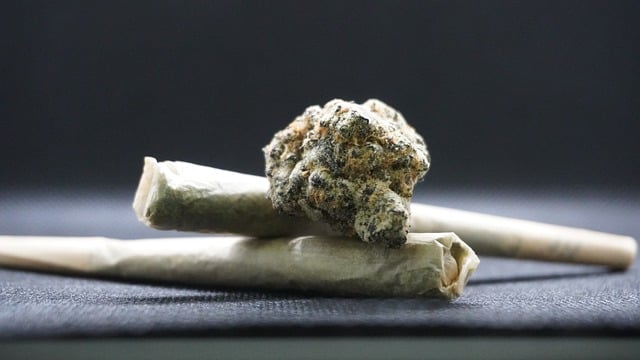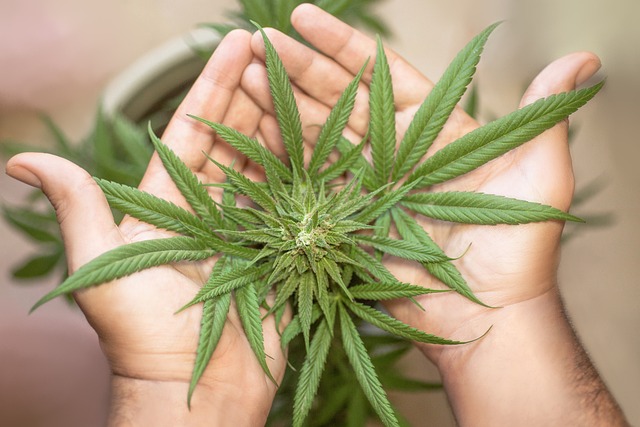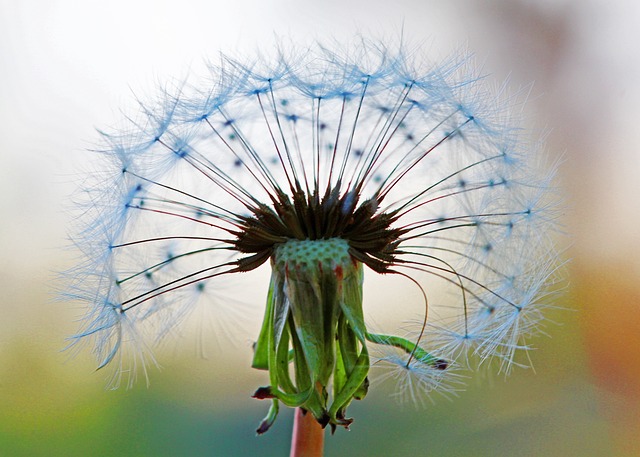
THCA buds, which are the raw form of THC and non-psychoactive, have been studied for their potential benefits in stress relief. They interact with the endocannabinoid system, influencing mood and stress response, and early research suggests they may offer anxiolytic effects. Users report experiencing calmness and reduced anxiety after using THCA buds, supported by preclinical studies. Beyond stress management, THCA's anti-inflammatory and neuroprotective qualities hint at broader therapeutic applications. However, users should exercise caution, as side effects like dry mouth, red eyes, dizziness, fatigue, or paranoia can occur. It's important to start with a low dosage to understand one's tolerance and to consult with a healthcare professional if you have health concerns or are on other medications. The use of THCA buds should align with local laws, and their efficacy and safety profile are subjects of ongoing research. As such, they could be a valuable addition to stress management strategies when used responsibly and in accordance with legal regulations.
Exploring the nuanced effects of THCA buds, this article sheds light on their potential role in stress relief and the associated side effects. We delve into the therapeutic properties of these compounds, highlighting key insights from recent research. Understanding both the benefits and risks of incorporating THCA flower into stress management regimens is crucial for informed decision-making. Join us as we navigate through the science behind THCA buds for stress relief and their impact on well-being.
- Unraveling the Effects of THCA Buds on Stress Relief
- THCA Flower Side Effects: What Users Should Know
- Navigating the Benefits and Risks of THCA for Stress Management
Unraveling the Effects of THCA Buds on Stress Relief

THCA, or Tetrahydrocannabinolic acid, is a non-psychoactive cannabinoid found in the raw cannabis plant, which, when heated or decarboxylated, converts to the well-known THC. In recent years, researchers have been unraveling the potential benefits of THCA buds, particularly in relation to stress relief. Preliminary studies suggest that THCA may interact with the body’s endocannabinoid system, influencing signals responsible for physical sensations and mental states. This interaction could potentially modulate the body’s response to stress by promoting homeostasis, a state of balance within the body.
Consumers reporting on their experiences with THCA buds often describe feelings of calmness and reduced anxiety without the psychoactive effects associated with THC. These anecdotal reports are supported by preclinical research indicating that THCA may have anxiolytic properties, which could contribute to its potential as a natural remedy for stress relief. Furthermore, the anti-inflammatory and neuroprotective effects observed in studies on THCA add to the rationale behind its use for alleviating stress. As interest in cannabinoids for therapeutic purposes grows, ongoing research into the effects of THCA buds is critical to understanding their full potential in addressing the widespread issue of stress and related conditions.
THCA Flower Side Effects: What Users Should Know

When exploring the therapeutic potential of THCA flower, which is the raw form of tetrahydrocannabinolic acid, it’s crucial for users to be aware of its side effects. THCA buds are often praised for their stress-relieving properties, offering a natural alternative to manage anxiety and promote calm. However, like any substance with biological activity, it can have adverse effects that should not be overlooked. Users may experience mild side effects such as dry mouth and red eyes upon consuming THCA flower. These are typically temporary and diminish once the individual has acclimated to the compound. More significant side effects, although less common, can include dizziness, lethargy, and paranoia. It’s important for users to start with a low dose to gauge their body’s response and adjust accordingly. Additionally, consuming THCA flower should be done responsibly, adhering to local regulations and guidelines. Users considering incorporating THCA buds into their stress management routine should consult with a healthcare professional, especially if they have underlying health conditions or are taking other medications. This due diligence can help mitigate risks and ensure a safer experience with the therapeutic benefits of THCA flower.
Navigating the Benefits and Risks of THCA for Stress Management

Considering the growing interest in alternative stress management solutions, THCA buds have garnered attention for their potential therapeutic properties. Tetrahydrocannabinolic acid (THCA), the raw form of THC found in cannabis plants, is believed to offer relaxing effects without the psychoactive impact associated with its decarboxylated counterpart. Research suggests that THCA interacts with the body’s endocannabinoid system, which plays a crucial role in regulating mood and stress responses. Users report feelings of calm and reduced anxiety levels when using THCA buds for stress relief, making them a viable option for those seeking natural ways to cope with stress. It’s important to approach the use of THCA with caution, as individual reactions may vary, and potential side effects can include dry mouth and drowsiness. Additionally, while THCA is being studied for its benefits, more research is needed to fully understand its effects and optimal usage for stress management.
When incorporating THCA buds into a stress relief regimen, it’s essential to consider dosage and the method of consumption, as these factors can influence the experience and effectiveness. It’s also worth noting that the legal status of THCA products varies by region, so users must ensure they comply with local laws. For those interested in exploring THCA buds for stress relief, it’s advisable to consult with a healthcare professional to discuss potential interactions with other medications and to determine if this approach is suitable for their specific needs. With careful consideration and appropriate guidance, THCA may serve as a promising complementary strategy for stress management.
THCA buds have garnered attention for their potential in aiding stress relief, as explored throughout this article. While the benefits of THCA for stress management are promising, it’s crucial to approach its use with informed awareness of its side effects. Users should be well-versed in these to make safe and effective decisions regarding their health. In summary, THCA buds can be a valuable addition to one’s stress relief regimen when consumed responsibly. As with any therapeutic compound, understanding the nuances between benefits and risks is key to maximizing its positive impact while minimizing potential negative outcomes.







